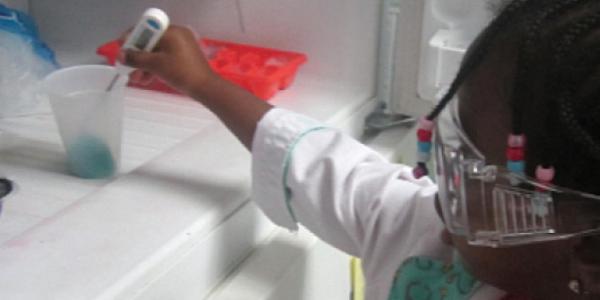Parallel Voices Commentary—Don’t Wait to Innovate: Enacting Educational Change Starts Now

You are here
Reading Talene Artinian’s Voices of Practitioners article, “Engaging Teachers and Toddlers in Science,” as a school administrator, I am moved to encourage other school administrators to think about their roles as change agents in their settings. In today’s rapidly changing world, school administrators must be able to think innovatively about ways to engage and challenge students in order to prepare them for their futures. We are in a position to positively or negatively influence students’ life trajectories based on the decisions we make in educational settings regarding curricular choices, course opportunities, and access to real world learning experiences. When making choices, we should think of the future world in which our students will live as adults.
Just as we marvel at the latest smartphone features, we need to think about possibilities for change in our schools. Like Artinian, we must ask ourselves questions that allow us to challenge the status quo and upgrade our students’ learning experiences in new and relevant ways. We must see our work as fluid, not fixed. We must anticipate that the ebb and flow of our work entails planning to revisit every aspect of our school’s being, and we must question whether our practices, routines, and traditions meet our students’ needs.
As we look to the future, we must see that traditional practices need to evolve with the times. Brazilian educator and philosopher Paulo Freire (1970) stated, “Knowledge emerges only through invention and re-invention, through the restless, impatient, continuing, hopeful inquiry human beings pursue in the world, with the world, and with each other” (72). We all have good intentions, but if our actions stifle creativity, problem solving, and critical thinking, and if they limit possibility for students, then we haven’t truly served our students. Administrators and educators must be the driving forces in cultivating the next generation of innovators. Therefore, we must be innovators ourselves.
As an elementary school principal, I live this experience of trying to provoke and support change every day. My school currently offers STEM for all students in grades K–5; our school community made that decision due to the high levels of engagement in the fourth and fifth grade STEM classes during the previous school year. Our students participate in schoolwide monthly engineering design challenges that ask them to use limited materials and resources to solve a real world problem. Recently, our students completed a “Ship the Chip” design challenge in which they were required to design packaging that would protect one single potato chip from breaking during multiple falls. After creating several prototypes, a few surviving models emerged: two from kindergarten classes, one from a second grade class, and one from a fourth grade class. Surprisingly, our youngest learners developed the best packaging models. Similar to Artinian and her teachers’ experience with their preschoolers, my kindergarteners’ success demonstrates that when we challenge all students, they can and will exceed our expectations. We believe that bringing STEM curriculum to scale and providing all students with hands-on STEM-infused learning experiences will whet their appetites to learn more, and possibly inspire them to consider STEM-aligned opportunities in middle school, high school, and beyond.
We don’t know what paths our students will take in their futures, but we must provide avenues and opportunities for them to be excited about learning. When we allow ourselves to stay rooted in past practices and traditional ways of teaching that impede students’ progress as learners, we risk sending them out into the world ill-prepared for the future.
Innovation in schools is essential. We must challenge our systems and structures, and we must challenge ourselves to think differently, teach differently, and lead differently. The time is now.
References
Boss, S. 2012. Bringing Innovation to School: Empowering Students to Thrive in a Changing World. Bloomington, IN: Solution Tree Press.
Freire, P. 1970. Pedagogy of the Oppressed. Translated by Myra Bergman Ramos. New York: Bloomsbury.
Sundai Riggins, PhD, is the principal of a public elementary school in Washington, DC. She spent eight years as a classroom teacher, two years as an assistant principal, and is currently in her eighth year as a principal. She holds an undergraduate degree from the University of Maryland, College Park, an executive masters degree in leadership from the McDonough School of Business at Georgetown University, and a doctorate from the University of Pennsylvania Graduate School of Education. Her dissertation, “The Woman in the Principal’s Office: A Reflective Approach to Using Self-Study to Understand the Successes and Challenges of Two Urban School Principalships,” merited distinction and was nominated for the 2018 Jolley Bruce Christman and Steven S. Goldberg Annual Award for Best Dissertation in Urban Education at the University of Pennsylvania. Her school was recently selected as a finalist for the Standing Ovation for DC Public Schools 2019 Innovation for Excellence Award.